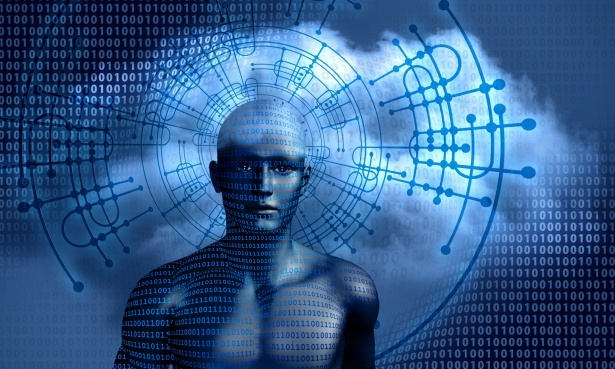
Table of Contents
1. Introduction
1.1 Definition of Artificial Intelligence
Artificial Intelligence, or Artificial Intelligence, is a revolutionary technology that strives to mimic human intelligence in machines. This extends beyond mere automation; AI aims to replicate cognitive functions, enabling machines to learn, reason, and make decisions.
1.2 Evolution of Artificial Intelligence
The journey of Artificial Intelligence began with rule-based systems and has evolved into sophisticated machine learning algorithms. From chess-playing computers to self-driving cars, the evolution of Artificial Intelligence is shaping the world in unprecedented ways.
2. Applications of Artificial Intelligence in Daily Life
2.1 Personal Assistants
Artificial Intelligence has seamlessly integrated into our daily lives through personal assistants like Siri, Alexa, and Google Assistant. These virtual companions not only execute commands but also understand and respond to natural language, making interactions more intuitive and user-friendly.
2.2 Smart Homes
The concept of smart homes has been significantly enhanced by Artificial Intelligence. From adjusting thermostat settings based on preferences to monitoring energy consumption patterns, AI plays a pivotal role in creating homes that are not just smart but also environmentally conscious.
2.3 Healthcare
Artificial Intelligence is revolutionizing the field of healthcare. It assists in diagnosing diseases, predicting patient outcomes, and even performing surgeries. The ability of Artificial Intelligence to analyze vast amounts of medical data in real-time enhances the accuracy and efficiency of healthcare practices.
3. Artificial Intelligence in Business and Industry
3.1 Automation
Businesses are leveraging Artificial Intelligence for automation, streamlining repetitive tasks and allowing employees to focus on more complex, creative aspects of their work. This not only boosts productivity but also contributes to overall job satisfaction.
3.2 Customer Service
Artificially intelligent assistants and chatbots powered by Artificial Intelligence are revolutionizing customer service. These intelligent systems can handle customer queries, provide information, and even facilitate transactions, offering a seamless and efficient customer experience.
4. Education and Artificial Intelligence
4.1 Personalized Learning
In education, Artificial Intelligence is tailoring learning experiences to individual students. By analyzing learning styles and progress, Artificial Intelligence systems create personalized curricula, fostering a more effective and engaging educational journey.
4.2 Artificial Intelligence in Assessments
The traditional approach to assessments is undergoing a transformation with Artificial Intelligence. Automated grading systems powered by Artificial Intelligence not only save time but also provide instant feedback, allowing for a more dynamic and responsive educational environment.
5. Artificial Intelligence and Creativity
5.1 Art and Music
Artificial Intelligence algorithms are stepping into the realm of creativity, challenging the notion that creativity is exclusive to human beings. From generating artworks to composing music, Artificial Intelligence is pushing the boundaries of what we perceive as artistic expression.
5.2 Content Creation
Content creators are increasingly relying on Artificial Intelligence tools to generate relevant and engaging content. This not only speeds up the content creation process but also ensures that the content is tailored to the preferences of the target audience.
6. Challenges and Concerns
6.1 Job Displacement
The rise of Artificial Intelligence brings forth concerns about job displacement. As automation takes over routine tasks, there is a growing need for reskilling and upskilling the workforce to adapt to the changing job landscape.
6.2 Ethical Concerns
The ethical considerations surrounding Artificial Intelligence are diverse. Issues of bias in algorithms, invasion of privacy, and the responsible use of Artificial Intelligence technologies are critical topics that require careful consideration and regulation.
7. The Future of Artificial Intelligence
7.1 Advancements in Artificial Intelligence
The future of Artificial Intelligence promises even more sophisticated capabilities. Continued research and development are expected to lead to breakthroughs in natural language processing, problem-solving, and decision-making.
7.2 Integration with Other Technologies
Artificial Intelligence is not an isolated entity but rather a component integrated with other cutting-edge technologies. The synergy of Artificial Intelligence with the Internet of Things (IoT) and blockchain opens up new avenues for innovation and collaboration.
8. Artificial Intelligence and the Environment
8.1 Sustainability
Artificial Intelligence is contributing significantly to environmental sustainability. Through optimizing resource usage and enhancing energy efficiency, Artificial Intelligence technologies are aligning with global efforts to create a more sustainable future.
8.2 Climate Change Solutions
In the fight against climate change, Artificial Intelligence is proving to be a valuable ally. From predicting climate patterns to developing solutions for sustainable practices, Artificial Intelligence is at the forefront of environmental conservation.
9. Artificial Intelligence in Healthcare Advancements
9.1 Diagnosis and Treatment
The healthcare sector is witnessing tremendous advancements with Artificial Intelligence. From accurate diagnosis to personalized treatment plans, AI is enhancing the capabilities of healthcare professionals and improving patient outcomes.
9.2 Drug Discovery
AI expedites the drug discovery process. By analyzing vast datasets and predicting potential drug candidates, AI is significantly reducing the time and costs associated with bringing new medications to market.
10. Artificial Intelligence in Security
10.1 Cybersecurity
Artificial Intelligence is becoming increasingly important in bolstering cybersecurity defenses against increasingly sophisticated cyberthreats. AI-driven systems can detect and prevent potential threats in real-time, fortifying digital landscapes.
10.2 Surveillance
AI-powered surveillance systems are enhancing public safety. Through efficient monitoring and rapid response capabilities, these systems contribute to the overall security of communities.
11. The Impact of Artificial Intelligence on Society
11.1 Social Implications
The integration of Artificial Intelligence into society has far-reaching implications. It influences how we communicate, interact, and even form relationships. Understanding and navigating these changes are crucial for fostering a harmonious coexistence between humans and Artificial Intelligence.
11.2 Cultural Shifts
The cultural landscape is undergoing significant shifts due to the integration of Artificial Intelligence. From the way we consume media to our perceptions of technology, these cultural changes reflect the evolving relationship between humans and Artificial Intelligence.
12. Addressing Misconceptions about Artificial Intelligence
12.1 Hollywood vs. Reality
Distinguishing between Hollywood portrayals of Artificial Intelligence and its real-world capabilities is essential. While movies often depict Artificial Intelligence as a threat, understanding the actual limitations and potential of Artificial Intelligence is crucial for informed discussions.
12.2 AI’s Limitations
Recognizing the limitations of AI is crucial for managing expectations. Despite its advancements, Artificial Intelligence is not infallible and has its constraints, especially in contexts that require nuanced human understanding and emotional intelligence.
13. Embracing Artificial Intelligence for Personal Growth
13.1 Learning Opportunities
Artificial Intelligence presents numerous learning opportunities. Individuals can acquire new skills, explore new fields, and stay relevant in a rapidly evolving job market by embracing the educational possibilities facilitated by Artificial Intelligence.
13.2 Skill Development
Developing Artificial Intelligence-related skills is becoming increasingly valuable. Whether in programming, data analysis, or Artificial Intelligence strategy, acquiring these skills is an investment in personal growth and career advancement.
14. Artificial Intelligence and Accessibility
14.1 Assistive Technologies
AI-driven assistive technologies are making significant strides in enhancing accessibility for individuals with disabilities. From speech recognition to predictive text, these technologies contribute to a more inclusive digital environment.
14.2 Inclusive Design
Incorporating AI in inclusive design practices ensures that technology is accessible to diverse user groups. This approach not only aligns with ethical considerations but also fosters innovation in creating products and services that cater to a broader audience.
15. Conclusion
In conclusion, the influence of Artificial Intelligence is pervasive, touching every aspect of our lives. From healthcare to education, business to creativity, the impact is undeniable. It is crucial to embrace the potential of Artificial Intelligence while actively addressing the challenges it presents. Striking a balance between innovation and ethical considerations is key to shaping a future where Artificial Intelligence enhances human lives without compromising our values.
FAQs
- Q: How is Artificial Intelligence impacting daily life?
- Artificial Intelligence impacts daily life through personal assistants, smart homes, and advancements in healthcare, making tasks more efficient and improving overall well-being.
- Q: What are the concerns surrounding Artificial Intelligence?
- Job displacement and ethical considerations, such as bias and privacy issues, are primary concerns associated with the rise of Artificial Intelligence.
- Q: How does Artificial Intelligence contribute to environmental sustainability?
- Artificial Intelligence contributes to environmental sustainability by optimizing resource usage, enhancing energy efficiency, and supporting climate change research.
- Q: What is the future of Artificial Intelligence?
- The future of AI holds promise with advancements in natural language processing, problem-solving, and integration with other technologies like IoT and blockchain.
- Q: How can individuals embrace Artificial Intelligence for personal growth?
- Individuals can embrace Artificial Intelligence for personal growth by exploring learning opportunities, developing AI-related skills, and staying informed about the evolving landscape of technology.
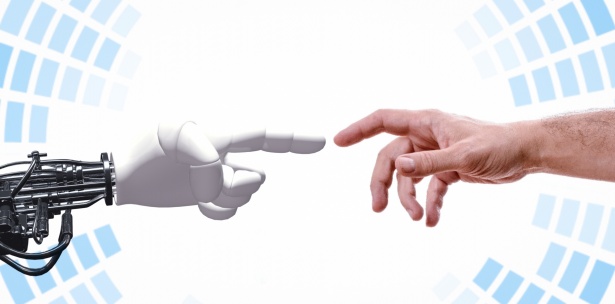

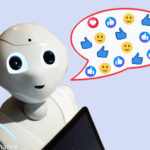



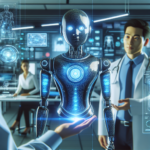


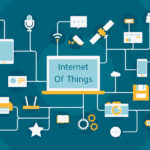
4 thoughts on “How AI is Changing the World (and Your Life), 14 important points.”